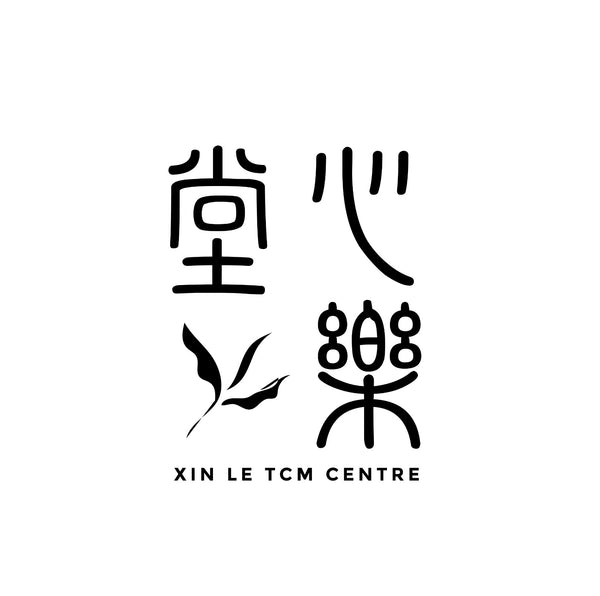Many women find themselves navigating a challenging transition as they approach menopause, often filled with unexpected symptoms that can disrupt daily life. But there’s good news—understanding perimenopause and how to manage it can empower you to embrace this phase of life with confidence.
Perimenopause is the time leading up to menopause. Usually starts in 40s, and can last as long as 10 years. This happens because ovaries reserve deteriorates with age and uterus becomes weaker, impacting hormones levels. It’s actually a part of natural ageing process. While we have all heard how bad perimenopause signs and symptoms can be, they are actually treatable with TCM. With proper management to support your body in perimenopause, women can ease through this phase in life.

Understanding Perimenopause from different perspectives
Western Medication perspective
Production of reproductive hormones, estrogen and progesterone which are produced in the ovaries decline naturally is the main cause of perimenopause. Estrogen not only helps to regulate menstrual cycle and ovulation, it also facilitate calcium metabolism and maintain cholesterol level in a healthy level. Progesterone plays an vital role in the implantation process, pregnancy process, regulates blood pressure and maintaining good sleeping quality and mood.
Thus, when the levels of sex hormones are low, women experience changes in their bodies.
TCM perspective
It was described in Huang Di Nei Jing that when women reach 7x7 = age 49, their Tian Kui – Kidney essence (the important substances to support reproductive system) will be exhaust, leading to perimenopause to menopause.
From TCM perspective, perimenopause is due to Kidney deficiency. Kidney is the most important organ that governs reproductive system. As women experience monthly menstruation, kidney essence naturally decline over time. There will be lack or qi and blood in Ren and Chong meridians, fails to nourish the reproductive organs, leading to anovulation and hormone imbalance.
Thus, TCM focuses in enhancing Kidney, nourishing the body and restore the balance of Yin and Yang.

Perimenopause Signs and Symptoms
- Hot Flashes
- Mood swings or depression
- Insomnia
- PMS such as menstrual cramps, breast tenderness
- Body pains and aches
- Night sweats
- Brain fog or forgetfulness
- Vagina dryness and loss of libido
- Dry skin, eyes and mouth
- Hair loss
- Fatigue
How does TCM helps?
Fortunately, TCM treatments such as acupuncture and herbal medication are effective in treating and relieve the symptoms.
Acupuncture is a natural way to rebalance hormones and organs, relieve symptoms without any side effects, regulate nervous system, immune system and endocrine system. Chinese herbal medication is effective in relieving perimenopause symptoms and also treating the root cause. It is prescribed based on your body, and is tailored to each women’s needs. These herbal formulas focus on tonifying qi, nourishing and balancing the hormones. In fact, studies have found that these herbal medication to be safe and effective in relieving the symptoms.
- Hot flashes, night sweats and dryness
One of the most common symptoms of perimenopause. It happens when Yin energy (body cooling) declines, leads to excess of Yang energy (body heat), causing hot flashes. Acupuncture and Chinese medication able to nourish Yin and clear excess heat.
- Mood changes
In TCM, when liver system is out of balance, there will be fluctuation in hormone levels. Also, Liver is associated with our emotions, especially anger. Acupuncture is proven to be effective in balancing Liver system and stabilising the mood.
- Fatigue and insomnia
It can be due to hormonal imbalance and poor sleeping quality during perimenopause. TCM focuses on strengthening digestive system as a healthy digestive system not only provides energy, it also prevent premature aging. Furthermore, acupuncture is effective in improving sleep quality and to boost energy levels.
- Menstrual cycle changes
It is an early indicator of perimenopause. Changes such as shorter period, skipped periods, change in volume are common. Acupuncture can help to regulate menstrual cycle by increasing blood and qi flow to the reproductive organs and regulates the hypothalamic-pituitary-ovarian (HPO) axis.
Tips to manage Perimenopause symptoms
- Eat Yin nourishing food and black-coloured food
Avoid fried and oily food, as well as cold food. Food such as Chinese Yam, Bai Shu, Astragalus root, Goji berries and white fungus are beneficial. Black colour is associated with Kidney. Try adding black dates, black sesame, black fungus, seaweeds and blackberries into your diet
- Get enough sleep and rest
Sleeping late will exhaust Kidney and Liver Yin and Qi. Try to soak your feet in herbal warm water to help fall asleep easily.
- Exercise regularly
Exercise improves blood and qi flow to organs and also produces hormones that reduce stress levels.
- Acupressure
Acupoints used to regulate qi and blood for perimenopause symptoms :
San Yin Jiao : nourish blood, regulate menstruation, relieve night sweat and hot flashes
Tai Xi : Strengthen Kidney, nourish Yin, improve sleeping quality
Guan Yuan : Regulate Chong and Ren meridians, relieve hot flashes.
Tai Chong : Regulate liver qi, boost mood and improve sleeping quality.
Regular acupuncture help to regulate qi and blood flow, strengthen kidney and reproductive system, regulate menstrual cycle and balance Yin and Yang.

Perimenopause may be a natural stage of life, but that doesn’t mean you have to suffer through it. With Traditional Chinese Medicine, you can find relief and restore balance to your body. Every woman’s experience is unique, and at Xin Le TCM, we’re here to provide personalized care that meets your individual needs. Contact us today to learn how we can help you navigate this important phase of life with ease.

